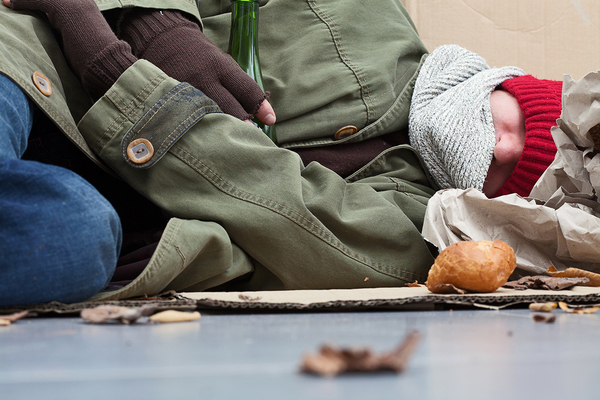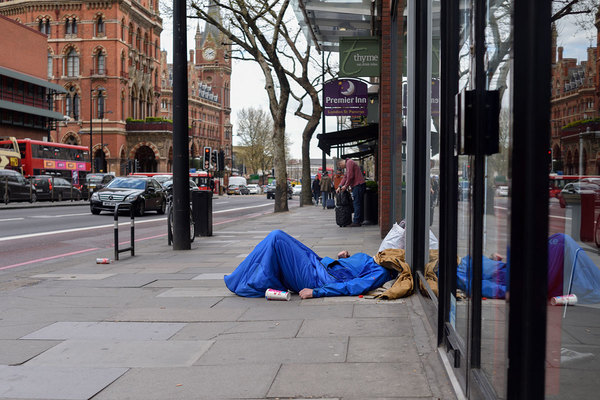
As a former rough sleeper I know the importance of specialist support services
Statistics may be showing a fall in rough sleeping but the number has still risen sharply over the past 10 years. Specialist support services are crucial if we want to turn this around, writes Jordan Smith*
New statistics have revealed that although the number of people sleeping rough has fallen over the past two years, since 2010 the total has increased by nearly 2,500 – that equates to 141%. Those figures are terrifying, and guess what? I’m one of those statistics.
I’m Jordan, and from 2012 to 2014 I slept rough on the streets of Hartlepool. I had no support network and any ‘friends’ were really just drinking associates. As well as smoking cannabis and snorting cocaine, I was drinking up to nine litres of cider a day, just to be able to cope with the mess that was my life.
This is the reality of life on the streets.
And this is where homelessness supported housing services can, and do, make a world of difference. In 2014 I moved into a Sanctuary Supported Living service in Hartlepool, which specialised in supporting young people who were homeless or at risk of homelessness.
It was far from plain sailing – even while I had a tenancy I still struggled to engage with staff. I was an addict and entrenched rough sleeper, and old habits die hard. Charity Crisis highlights that, on average, homeless people die at just 44 years old – from personal experience, I can attest that this is true. It’s a sobering thought that if I had remained on the streets and even made it this far, it’s likely I’d now have less than 15 years to live.
My support workers didn’t give up on me, but more than that they went above and beyond the call of duty. During one of my absences from the service, they came to a squat I had holed up in to persuade me to come back. They were my source of support when I ended up in hospital after having a seizure due to the abuse I piled on my own body.
Even after I was supported into different homes of my own and I sold my medication so I could buy alcohol, they stuck with me. At the point of no return, I finally entered a six-month rehabilitation programme and during that time I spoke with my former project worker every week to update her on my progress.
“Rough sleepers need real support from people who care, people who see us as individuals with different needs”
Coming out of rehab and going back to my hometown was terrifying. The first place I went was to the Sanctuary service I’d been placed in five years before and I have stayed in contact with them ever since.
Today, I’m clean of drugs and alcohol and living independently, and proud to be volunteering at the service where I previously lived. I hope the young people there can learn from my lived experience.
Last week the government announced new measures to get more rough sleepers off the streets and into safe accommodation through an extra £236m of funding. Although this is vital, and will see the appointment of an independent advisor to lead an urgent review, it’s not just about the money.
Rough sleepers need real support from people who care, people who see us as individuals with different needs.
Rough sleeping, and homelessness as a whole, is one of the most devastating issues facing our country. The ingrained rough sleeping lifestyle is almost impossible to break away from, and I am living proof that the only way to do so is with meaningful, tailored support.
People were ready to write me off and give up on me, and it wasn’t until I eventually engaged with the support on offer that I realised my life was worth living. A specialist homelessness supported housing service changed my life and without it I have no doubt that I wouldn’t be here today.
The world would do well to remember that rough sleepers are human too and are no different to you and me.
Jordan Smith, former rough sleeper (*name has been changed)



